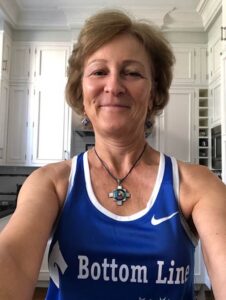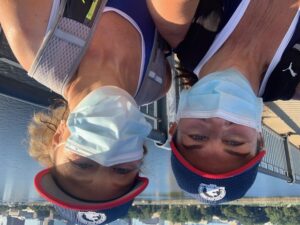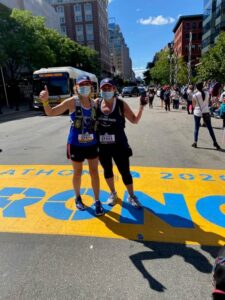 How did you first learn about Bottom Line?
How did you first learn about Bottom Line?
I was CEO of The Princeton Review when one of our team members left to join Bottom Line. He was so was passionate about the mission that I didn’t even try to persuade him to stay with us, and decided instead to get involved myself. He invited me to run the Boston Marathon for Bottom Line in 2015, and I’ve been involved in the cause ever since!
What about the organization keeps you involved?
I get asked to support many different groups, but Bottom Line stands out from the crowd because of its action-orientation. The team doesn’t just talk about the issues – they actually do something about it. The passion for the mission starts right at the top with Steve Colón, and many of the staff are alumni or were first-gen students themselves. They will NOT let a single student fall through the cracks.
Another thing that stands out is the rigor with which Bottom Line measures outcomes. I like to support organizations that are analytical and outcome-oriented, and Bottom Line does regular studies to see how their students are doing vs. comparable student populations. The results are impressive, and it is clear that Bottom Line makes a difference. Our donations are well spent.
Is there a specific mission moment or connection with a student/advisor/etc. that really moved you?
I love everyone I’ve met at Bottom Line!
A few people really stand out for me. Rich Pierre who is a relentless ambassador for the cause, graduated from Bentley (undergrad and MBA), worked at BCG, and is now a healthcare project analyst. And Abenet Tzerai, whose family is from Eritrea, ran the Boston Marathon for Bottom Line in 2016 and raised over $12,000. He graduated from medical school this year and is now working in New York. They are both outstanding people and are giving back to their communities in ways that multiply Bottom Line’s impact.
You ran the Boston Marathon for Bottom Line this year and raised over $80K – tell us about your experience, and how you motivated yourself during the marathon itself.

It was insane. I’m not a runner, I’m 61, and I have a disease that affects my joints, so it wasn’t a particularly smart idea. I thought I was signing up for four months and didn’t know that it would be nine months, nor that I would end up running over 1,000 miles during my training (and taking over 2 million steps!).
I also didn’t know that the race was going to become “virtual.” No crowds. No Wellesley College scream tunnel. No water stops. And no porta-potties! Actually, there was nothing “virtual” about it – every step of my 26.2-mile run was real, for me and for the 15,470 runners with me on different courses in over 100 countries around the world. I ran my 26.2 miles along the Charles River with another charity runner, ending at the finish line on Boylston Street. Family and friends camped out and provided bananas and Gatorade when needed – some even ran parts of the route with us. We were very lucky with the weather, and it was beautiful running along the Charles. We didn’t push ourselves and took pictures as we went. It took just over 5 hours and finished in relative comfort, with no sore muscles or stiff joints the next day.
The biggest excitement, though, was to raise over $80K for Bottom Line – I have wonderful friends who believe in the mission and donated multiple times over my 9 months of training.
I asked them to share stories of the strong women they grew up with, and I called out the names of those strong women at each mile during my run, for inspiration. Most of the stories were about first-generation women, many of who traveled thousands of miles to reach the US and build lives here, and who made sure their kids were educated. Now their children and grandchildren have donated thousands of dollars for others to do the same. It seems poetic.
Our students are facing an uncertain landscape throughout the coming months. What advice would you give them as they work toward completing their college degrees and get ready to graduate?
Ask for help when you need it. Don’t let a bad grade derail you, or a lack of cash cause you to drop out – those things happen to everyone, and there is always help available if you ask. The strongest people are those with the confidence to ask for help – the weakest are those who think they can go it alone.
no comment untill now